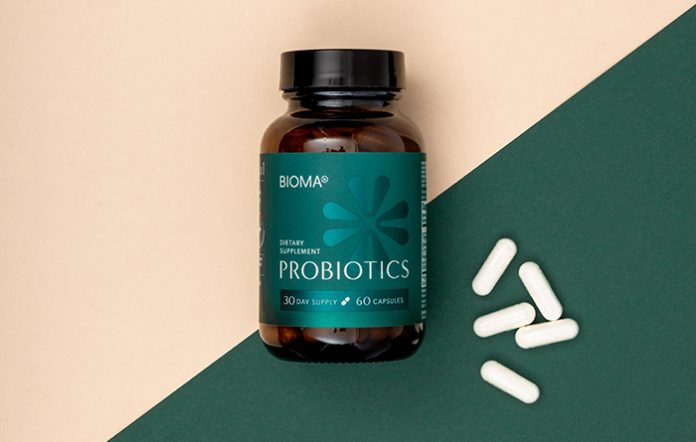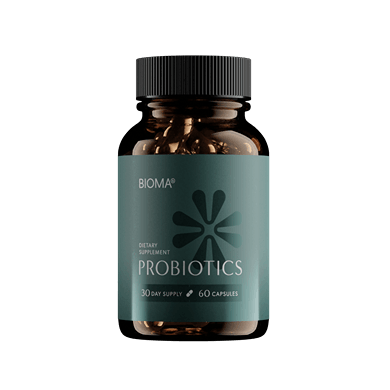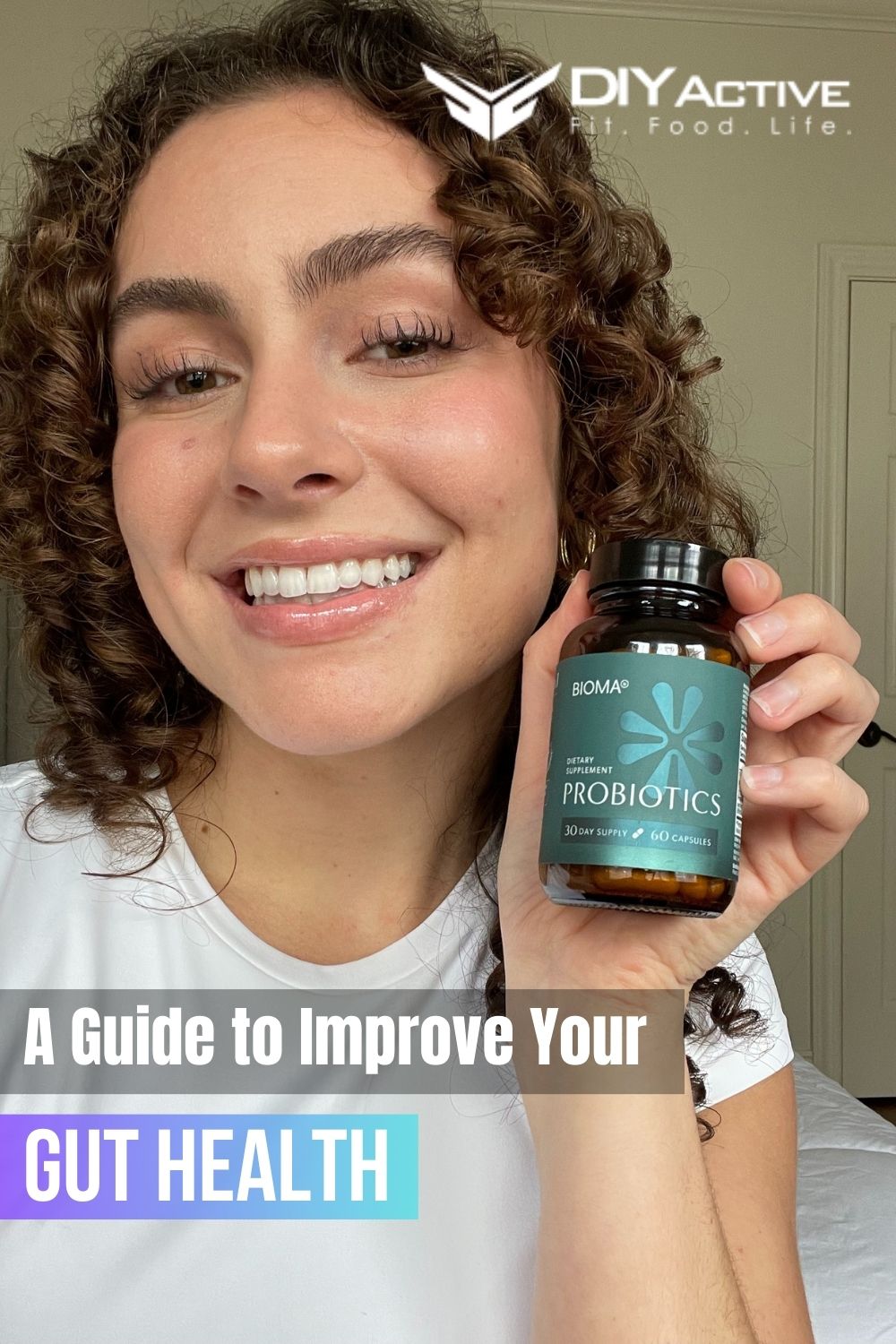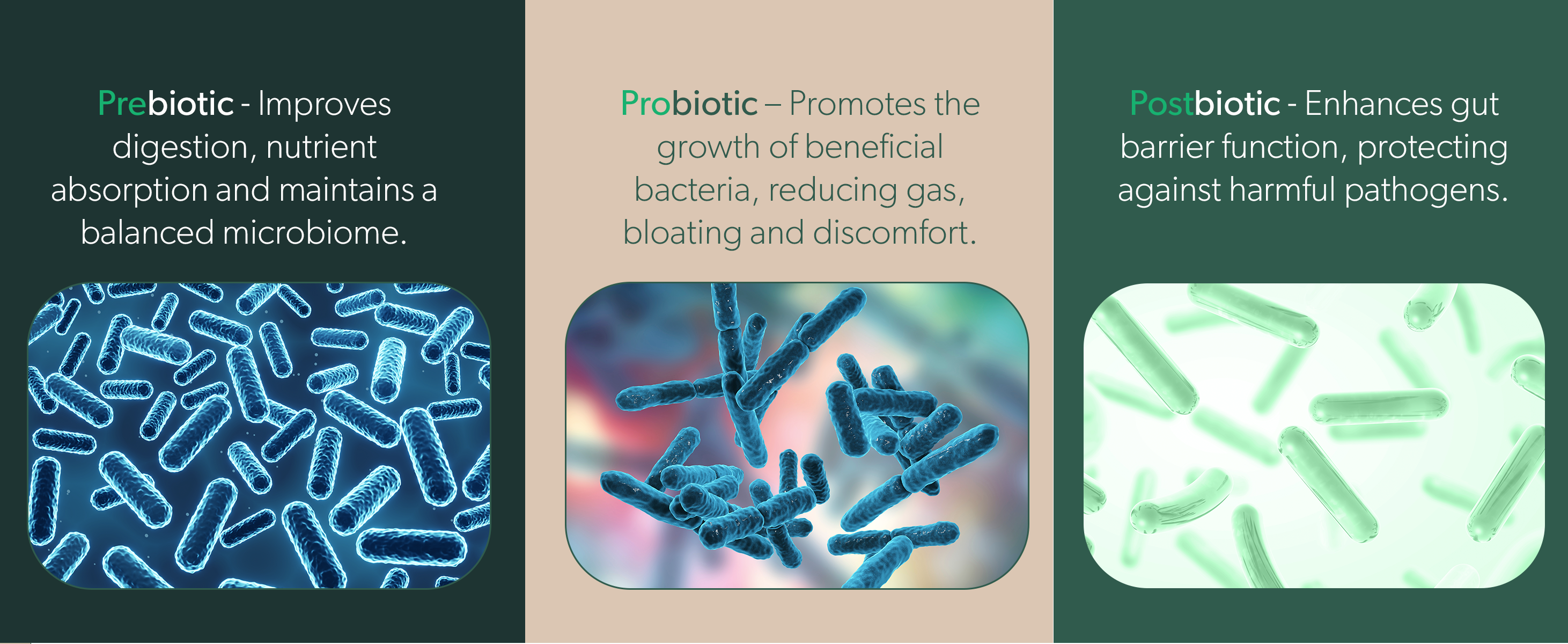
The Significance of Gut Health
In the realm of wellness, there’s a crucial yet often overlooked aspect that significantly impacts our overall health and vitality: gut health. While it may not be a topic of everyday conversation, the health of our gastrointestinal system plays a fundamental role in numerous bodily functions, from digestion and nutrient absorption to immune function and even mental well-being.
Unlocking Gut Health Secrets
In this comprehensive guide, we’ll delve into the intricacies of gut health, exploring what it entails, how to recognize signs of an unhealthy gut, the best foods and supplements for nurturing gut health, and how to select the right probiotics to support your digestive system.
Whether you’re seeking relief from digestive discomfort, looking to boost your immune system, or aiming to optimize your overall well-being, understanding and improving your gut health is a vital step on the path to wellness. So, let’s embark on this journey to unlock the secrets of a healthy gut!
What Is Gut Health?
Gut health is all about keeping our digestive system in balance and working properly. It includes all the organs involved in digestion, like the stomach, small intestine, large intestine, liver, and pancreas.
One of the most important things for gut health is having good bacteria living in our digestive system, which are also called gut microbiota or gut flora. These helpful bacteria are really important for many different processes in our body, like breaking down food, getting nutrients, keeping our immune system strong, and even affecting our mood.
A healthy gut is when you have lots of good bacteria living inside your body that work together to keep your digestive system running smoothly and help you stay healthy.
If you don’t have enough good bacteria, it can cause problems with your digestion, and inflammation, and even lead to serious health issues like diabetes and autoimmune disorders. So it’s important to take care of your gut and make sure you have plenty of good bacteria to keep you feeling your best.
Taking care of your gut health is important not just for your digestive system but also for your overall well-being and ability to fight off illnesses.
By making some simple changes to your lifestyle and diet, you can create a healthy environment in your gut that will help you feel better and more energized, and keep you healthy from the inside out.
5 Signs of an Unhealthy Gut
Various factors such as poor diet, stress, medications, and environmental toxins can disrupt the delicate balance of microorganisms in your gut, leading to an array of digestive issues and health concerns. In this section, we’ll explore five common signs that may indicate an unhealthy gut, helping you recognize when it’s time to take action to restore balance and promote gut health:
- Digestive discomfort. Persistent symptoms such as bloating, gas, abdominal pain, cramping, constipation, or diarrhea may indicate an imbalance in gut bacteria or irritation of the intestinal lining. These symptoms often signal underlying digestive issues, such as irritable bowel syndrome (IBS), inflammatory bowel disease (IBD), or food intolerances.
- Persistent fatigue. Chronic fatigue or low energy levels that persist despite adequate rest and sleep may be linked to poor gut health. The gut microbiota plays a crucial role in producing neurotransmitters and vitamins essential for energy metabolism. Imbalances in gut bacteria can disrupt these processes, leading to fatigue and lethargy.
- Mood disturbances. The gut-brain axis, a bidirectional communication pathway between the gut and the brain, influences mood regulation and mental health. Imbalances in gut bacteria can impact neurotransmitter production, contributing to symptoms of anxiety, depression, mood swings, or irritability.
- Food cravings and weight changes. Cravings for sugary, processed foods or frequent fluctuations in weight, particularly unexplained weight gain or difficulty losing weight, may signal imbalances in gut bacteria. Disruptions in gut microbiota can influence appetite regulation, nutrient absorption, and metabolism, potentially leading to weight-related issues.
- Compromised immune function. The gut plays a critical role in immune system function, housing a significant portion of the body’s immune cells and serving as a barrier against pathogens. An unhealthy gut may weaken immune defenses, leading to frequent infections, allergies, autoimmune conditions, or chronic inflammation.
If you’re feeling bloated, gassy, or experiencing stomach pain, it could be a sign that something is not quite right with your gut. But don’t worry; there are steps you can take to restore your gut health. Simple changes to your diet and lifestyle can help support the good bacteria in your gut, which can lead to improved overall health and well-being.
Best Foods for Gut Health
Maintaining a healthy gut involves more than just avoiding certain foods; it also requires incorporating gut-friendly foods into your diet. Here are some of the best foods to promote gut health:
- Fiber-rich foods. Fiber acts as fuel for the beneficial bacteria in your gut, promoting their growth and diversity. Include plenty of fruits, vegetables, whole grains, legumes, nuts, and seeds in your diet to ensure an adequate intake of fiber.
- Probiotic-rich foods. Probiotics are live bacteria and yeasts that confer health benefits when consumed in adequate amounts. Incorporate fermented foods such as yogurt, kefir, sauerkraut, kimchi, miso, and kombucha into your diet to introduce beneficial bacteria into your gut.
- Prebiotic-rich foods. Prebiotics are types of fiber that serve as food for probiotics, helping them thrive in your gut. Include foods like onions, garlic, leeks, asparagus, bananas, oats, and chicory root in your diet to support the growth of beneficial bacteria.
- Omega-3 fatty acids. Omega-3 fatty acids possess anti-inflammatory properties and may help reduce inflammation in the gut. Include fatty fish like salmon, mackerel, and sardines, as well as chia seeds, flaxseeds, and walnuts, in your diet to boost your omega-3 intake.
- Bone broth. Bone broth is rich in nutrients like collagen, gelatin, and amino acids, which can support gut health by repairing the intestinal lining and reducing inflammation.
- Fermented vegetables. In addition to traditional fermented foods, fermented vegetables like pickles, kimchi, and sauerkraut are rich in probiotics and can help promote a healthy balance of gut bacteria.
- Apple cider vinegar. Apple cider vinegar contains acetic acid, which may help improve digestion by increasing stomach acid production and promoting the growth of beneficial bacteria in the gut.
Incorporating these gut-friendly foods into your diet can help nourish your microbiome, support digestive health, and promote overall well-being.
Gut Health Supplements
If you find it challenging to consume all the foods necessary to nourish your gut or if you’re not particularly fond of spending hours in the kitchen, there’s still an easy way to improve your gut health.
Taking a gut health supplement can provide a convenient and effective way to support the balance of bacteria in your gut, especially when your diet may be lacking in certain nutrients or probiotic-rich foods.
These supplements typically contain a combination of probiotics, prebiotics, and other nutrients aimed at promoting a healthy gut microbiome. Here are some key types of gut health supplements to consider:
- Probiotics. Probiotic supplements contain live strains of beneficial bacteria that can help restore and maintain a healthy balance of gut flora. Look for supplements that contain a variety of strains, including Lactobacillus and Bifidobacterium species, which have been shown to offer various health benefits.
- Prebiotics. Prebiotic supplements contain nondigestible fibers that serve as food for the beneficial bacteria in your gut. By nourishing these bacteria, prebiotics can help promote their growth and activity, supporting overall gut health.
- Synbiotics. Synbiotic supplements combine both probiotics and prebiotics in a single formulation, offering the benefits of both types of gut-friendly ingredients. This synergistic approach can help enhance the effectiveness of the supplement in supporting digestive wellness.
- Digestive enzymes. Digestive enzyme supplements contain enzymes that help break down carbohydrates, proteins, and fats in the digestive tract, aiding in the digestion and absorption of nutrients. These supplements may be particularly beneficial for individuals with digestive issues or those who have difficulty digesting certain foods.
- Postbiotics. Postbiotics are the metabolites produced by probiotic bacteria during fermentation. While less common than probiotics and prebiotics, postbiotic supplements are gaining attention for their potential to support gut health and overall well-being.
If you’re planning to take new supplements to improve your gut health, it’s crucial to first talk to a healthcare professional. This is especially important if you have any health issues or are taking medications that might interact with the supplements.
Best Probiotics for Gut Health & How to Choose Them
With numerous probiotic supplements available on the market, selecting the right one can be overwhelming. Here are some key factors to consider when choosing the best probiotics for gut health:
- Strain diversity. Look for probiotic supplements that contain a variety of bacterial strains, including Lactobacillus and Bifidobacterium species. Each strain may offer unique health benefits, so a diverse formulation can help ensure comprehensive support for your gut microbiome.
- CFU count. CFU, or colony-forming units, indicate the number of viable bacteria present in each dose of the supplement. Choose probiotics with a high CFU count to ensure sufficient quantities of beneficial bacteria reach your gut and exert their effects.
- Survivability. Probiotic bacteria are sensitive to heat, moisture, and stomach acid, which can reduce their viability during storage and digestion. Look for supplements with enteric coatings or microencapsulation technology, which help protect the bacteria from degradation and ensure their survival until they reach the intestines.
- Additional ingredients. Some probiotic supplements may contain prebiotics, which serve as food for the probiotic bacteria and support their growth and activity. Others may include digestive enzymes or postbiotics, which can further enhance gut health. Consider your specific needs and preferences when selecting a probiotic supplement with additional ingredients.
- Formulation type. Probiotic supplements come in various formulations, including capsules, tablets, powders, and liquids. Choose a formulation that is convenient and easy for you to incorporate into your daily routine.
- Health benefits. Consider your specific health goals when selecting a probiotic supplement. Some strains may be more beneficial for certain conditions, such as digestive issues, immune support, or mood regulation. Choose a probiotic that aligns with your individual needs and preferences.
By considering these factors and choosing a high-quality probiotic supplement, you can effectively support your gut health and promote overall well-being. Remember to consult with a healthcare professional before starting any new supplement regimen, especially if you have underlying health conditions or are taking medications.
 Editor’s choice for the best probiotic supplement: Let’s highlight one exceptional probiotic supplement that encompasses all three components essential for gut health: probiotics, prebiotics, and postbiotics. Bioma stands out as a comprehensive solution that combines these elements into a single, convenient formula.
Editor’s choice for the best probiotic supplement: Let’s highlight one exceptional probiotic supplement that encompasses all three components essential for gut health: probiotics, prebiotics, and postbiotics. Bioma stands out as a comprehensive solution that combines these elements into a single, convenient formula.
By integrating probiotics to introduce beneficial bacteria, prebiotics to nourish their growth, and postbiotics to support overall gut health, Bioma offers a holistic approach to gut microbiome support.
Moreover, with Bioma, you can enjoy the benefits of all three components at a fraction of the cost compared to purchasing them separately. This science-backed supplement provides an affordable and effective solution for optimizing gut health and promoting overall well-being.
Bioma provides a complete solution to enhance digestion, strengthen immunity, relieve digestive issues, and improve overall digestive health. Bioma’s thoughtfully chosen ingredients work together to help the body absorb nutrients better, maintain a healthy weight, and promote better mood and energy levels. Bioma makes it easy and efficient for people to improve their gut health, resulting in increased energy and a better quality of life.


Bioma Probiotics Offer - 75% Off Discount Code
FAQs
What are prebiotics?
Prebiotics are special fibers that are not broken down by our bodies but serve as food for the good bacteria in our digestive system. They help these bacteria grow and multiply, and keep our gut healthy. Think of them as fuel for the tiny creatures in our stomachs that keep us feeling good.
What are probiotics?
Probiotics are tiny living organisms found in some foods and supplements that can help keep your gut healthy. They are mostly bacteria but also include some types of yeast. When you eat enough probiotics, they can improve the balance of bacteria in your gut, which can help you digest food better and support your overall health.
When to take probiotics?
Probiotics are supplements that can help improve your gut health. You can take them at any time of the day, with or without food. However, some people think it’s better to take them on an empty stomach because it helps your body absorb them better. It’s important to read the label or talk to a doctor or nurse to make sure you take the right amount at the right time.
When to take prebiotics?
Prebiotics are helpful substances that can be taken at any time of the day, with food or a snack. When consumed along with probiotics, they can make them work even better by providing food for good bacteria in the gut.
How long do probiotics take to work?
The effects of probiotics can take different amounts of time to show up in different people. This depends on things like the kind of probiotic you’re taking, how much you’re taking, and what health issues you’re trying to improve. Some people might feel better in just a few days, while others might need a few weeks to start to notice any changes. But it’s important to keep taking probiotics consistently to get the most benefits in the long run.




